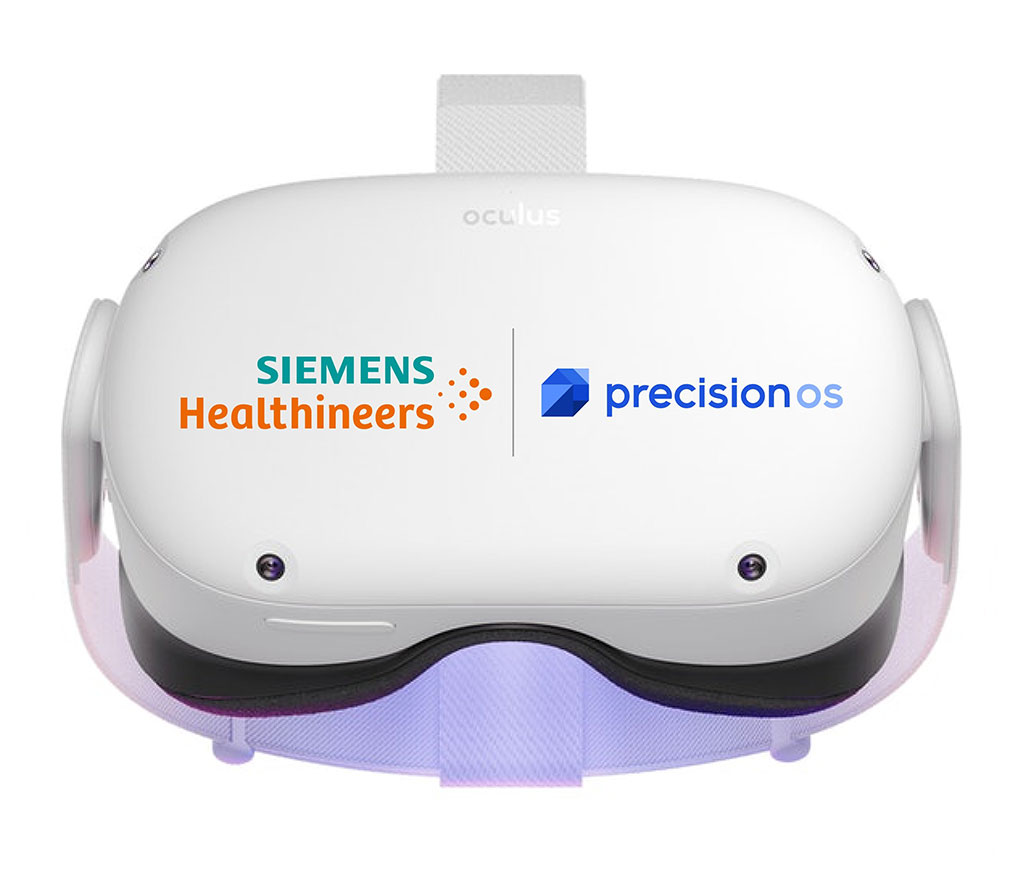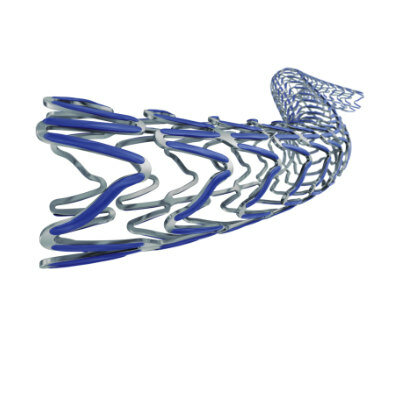Siemens Offers VR-Based Surgical Training in Partnership with PrecisionOS
|
By HospiMedica International staff writers Posted on 25 May 2022 |

Siemens Healthineers (Erlangen, Germany) is offering immersive virtual reality (VR) training in partnership with PrecisionOS (Vancouver, Canada) to help surgeons and technicians practice the use of its mobile 3D C-arm Cios Spin for intraoperative quality control and surgical workflow guidance. Multi user, peer-to-peer training sessions will enable the exchange of surgical procedure knowhow on a virtual patient and will lead to an enhanced surgeon/technician collaboration.
Conventional 2D imaging may not always provide enough information to safeguard correct placement of screws and implants. Intraoperative 3D imaging helps transform care delivery by improving surgical outcomes. To provide 3D capabilities that can be seamlessly integrated into clinical routine, Siemens has developed Cios Spin - a mobile 2D and 3D C-arm for intraoperative quality assurance. Easy to integrate into any surgical routine, it features dedicated 3D technologies that allow surgeons to confirm their planned results. The Cios Spin offers optimal 3D and 2D imaging for the precise intraoperative guidance and versatility to advance therapy outcomes.
"PrecisionOS' VR software allows for surgeons to practice and behave authentically as well as collaboratively in a hyper-realistic environment," said Janine Weidling, Global Head of Education Services Advanced Therapies at Siemens Healthineers. "This increases the quality of procedure- and imaging-related skills for the users and provides them with more certainty, especially in demanding surgical cases."
"Providing better training for surgeons and technicians will promote better teamwork and experience for everyone in the OR," added Danny Goel, M.D., orthopedic surgeon and CEO, PrecisionOS. "The result will be better patient care and improved OR safety."
Related Links:
Siemens Healthineers
PrecisionOS
Latest Business News
- Expanded Collaboration to Transform OR Technology Through AI and Automation
- Becton Dickinson to Spin Out Biosciences and Diagnostic Solutions Business
- Boston Scientific Acquires Medical Device Company SoniVie
- 2026 World Hospital Congress to be Held in Seoul
- Teleflex to Acquire BIOTRONIK’s Vascular Intervention Business
- Philips and Mass General Brigham Collaborate on Improving Patient Care with Live AI-Powered Insights
- Arab Health 2025 Celebrates Landmark 50th Edition
- Boston Scientific Acquires Medical Device Company Intera Oncology
- MEDICA 2024 to Highlight Hot Topics of MedTech Industry
- Start-Ups To Once Again Play Starring Role at MEDICA 2024
- Boston Scientific to Acquire AFib Ablation Company Cortex
- Hologic Acquires Gynesonics to Strengthen Existing Gynecological Surgical Business
- Smith+Nephew and JointVue Partner on Ultrasound Preoperative Planning in Robotics-Assisted Surgery
- Stryker Completes Acquisition of NICO Corporation
- BD Completes Acquisition of Critical Care from Edwards Lifesciences
- ZOLL to Acquire Vyaire Medical’s Ventilator Business
Channels
Critical Care
view channel
Ingestible Smart Capsule for Chemical Sensing in the Gut Moves Closer to Market
Intestinal gases are associated with several health conditions, including colon cancer, irritable bowel syndrome, and inflammatory bowel disease, and they have the potential to serve as crucial biomarkers... Read moreNovel Cannula Delivery System Enables Targeted Delivery of Imaging Agents and Drugs
Multiphoton microscopy has become an invaluable tool in neuroscience, allowing researchers to observe brain activity in real time with high-resolution imaging. A crucial aspect of many multiphoton microscopy... Read more
Novel Intrabronchial Method Delivers Cell Therapies in Critically Ill Patients on External Lung Support
Until now, administering cell therapies to patients on extracorporeal membrane oxygenation (ECMO)—a life-support system typically used for severe lung failure—has been nearly impossible.... Read moreSurgical Techniques
view channel
Intravascular Imaging for Guiding Stent Implantation Ensures Safer Stenting Procedures
Patients diagnosed with coronary artery disease, which is caused by plaque accumulation within the arteries leading to chest pain, shortness of breath, and potential heart attacks, frequently undergo percutaneous... Read more
World's First AI Surgical Guidance Platform Allows Surgeons to Measure Success in Real-Time
Surgeons have always faced challenges in measuring their progress toward surgical goals during procedures. Traditionally, obtaining measurements required stepping out of the sterile environment to perform... Read morePatient Care
view channel
Portable Biosensor Platform to Reduce Hospital-Acquired Infections
Approximately 4 million patients in the European Union acquire healthcare-associated infections (HAIs) or nosocomial infections each year, with around 37,000 deaths directly resulting from these infections,... Read moreFirst-Of-Its-Kind Portable Germicidal Light Technology Disinfects High-Touch Clinical Surfaces in Seconds
Reducing healthcare-acquired infections (HAIs) remains a pressing issue within global healthcare systems. In the United States alone, 1.7 million patients contract HAIs annually, leading to approximately... Read more
Surgical Capacity Optimization Solution Helps Hospitals Boost OR Utilization
An innovative solution has the capability to transform surgical capacity utilization by targeting the root cause of surgical block time inefficiencies. Fujitsu Limited’s (Tokyo, Japan) Surgical Capacity... Read more
Game-Changing Innovation in Surgical Instrument Sterilization Significantly Improves OR Throughput
A groundbreaking innovation enables hospitals to significantly improve instrument processing time and throughput in operating rooms (ORs) and sterile processing departments. Turbett Surgical, Inc.... Read moreHealth IT
view channel
Printable Molecule-Selective Nanoparticles Enable Mass Production of Wearable Biosensors
The future of medicine is likely to focus on the personalization of healthcare—understanding exactly what an individual requires and delivering the appropriate combination of nutrients, metabolites, and... Read more
















